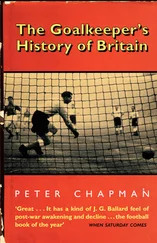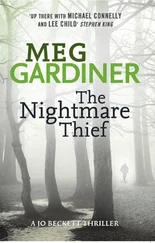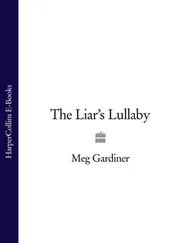Lenin had translated the Webbs’ Theory and Practice of Trade Unionism into Russian (‘An example of the quality of boredom being twice blessed,’ thought Malcolm Muggeridge), and by virtue of this the Webbs had become ‘ikons in the Soviet Union’, and were given a superior tour to that allowed to most Intourist visitors, though their itinerary was the usual one: collective farms, schools, clinics, factories. When they came to dine with Reader Bullard (‘At least he came to dinner and she came to two pieces of toast and a glass of red wine. Nine out of ten tourists have their insides upset by bad food, and Mrs Webb is one of the nine’) they explained that they were ‘mainly interested in the organisation of the State, the way the wheels go round, and they seem to have collected a great deal of information’.
Theirs was a tiring trip, so tiring for a couple whose joint ages totalled 147 years that Beatrice managed to write little more than headings in the black notebook labelled ‘Russian Tour. 10 shillings Reward if Lost’. Sidney had viewed the Soviet Union ‘with the relish of a scientist whose theoretical proposition has stood the test of practical experiment: “See, see, it works, it works.”’ Beatrice too felt a sense of satisfaction: ‘The problem we have been seeking to solve for the last fifty years — poverty in the midst of plenty — is today being solved, and very much as we should have solved it, if we had had our way.’ But her enthusiasm was tempered: she queried, ‘How far can you disentangle what is good in Russia from what is bad? … Can you take the economic organization of Soviet Russia and reject the “dictatorship” of a creed or caste? … These are the sorts of problems which have to be solved by those who wish to supersede, in their own country, capitalist profit-making by the equalitarian production, distribution and exchange of the wealth of the nation.’
George Bernard Shaw paid a visit in July 1931 and was refused permission by his minders to see what he wanted, so Reader Bullard took him to the Kazan Cathedral (which he did ‘not find very interesting’) and St Isaac’s Cathedral (‘the anti-religious museum’), then invited the Fabian playwright back for tea at the Consulate, where ‘he talked for two hours and told us all a lot about Russia … just waving away anything that did not fit in with his preconceptions’. Hugh Dalton (former Labour Under-Secretary for Foreign Affairs and future Chancellor of the Exchequer) and Frederick Pethwick-Lawrence (from the Treasury, and a keen suffragette-supporter) tipped up in that busy summer of 1932. ‘They have come to look at Soviet finance,’ noted Bullard. The feminist author and journalist Cicely Hamilton, one of the few visitors to speak any Russian, arrived in June, intending to write an article about the country (which she found drab, though she approved of the way young Soviet children in nursery schools were dressed alike and had their hair cropped so that you could not tell their sex) for Time and Tide . A vinegar merchant, one Mr Cook, arrived with a letter from the Mayor of Leeds addressed to the President of the Soviet Union, ‘whom he had been unable to see’, so the Consul invited him to dinner, at which ‘the innocent’ praised a factory canteen he had just seen as ‘better than anything in Leeds’.
Naomi Mitchison, a tireless traveller and writer, the sister of J.B.S. Haldane and the wife of a future Labour MP, was one of the Fabian Dalton/Pethwick Lawrence group that also included the formidable bookshop-owner Christina Foyle. Mitchison arrived in Leningrad wearing a garment of her own invention, a white jacket with ‘pockets all around it like purses in a belt’, and professing that her interest was mainly archaeological — though she made a particular point of finding out about birth control, and also about abortion practices, since Russia was the only country in which abortion was legal. ‘She’ll be pretty closely watched,’ commented Bullard darkly. On her return Mitchison was overheard ‘advocating a revolution for England’.
J.D. Bernal had been among a party of English doctors and scientists the previous summer. His enthusiasm for the USSR had been aroused by the unexpected visit to London a few weeks previously of Nikolai Bukharin, a close associate of Lenin and head of the Academy of Science’s section on the history of science and the Director of Research for the Supreme Economic Council, who led a delegation of Soviet scientists to the second International Congress of the History of Science and Technology. Bukharin (who would perish in Stalin’s ‘great purge’ in March 1938) had somewhat dominated proceedings, speaking of how ‘a new science’ to parallel the new economic system had been born in the Soviet Union. Bernal, who considered the Congress ‘the most important meeting of ideas that has occurred since the Revolution’, could not wait to see this ‘new science’ for himself.
Two tours — in July and August 1931- were organised by the Manchester Guardian’s science correspondent, J.G. Crowther, under the auspices of the Society for Cultural Relations. The doctors — some of whom were shocked to see women undergoing abortions in state clinics in Moscow without benefit of anaesthetics, which was normal practice — were in the majority, but Julian Huxley, who was very impressed that the Soviet authorities were ‘preparing to increase expenditure on pure scientific research far beyond that attempted in any capitalist country’, was one of the handful of scientists. In July Bukharin had hosted a lavish banquet (paid for by the Soviet government) at the Dynamo sports stadium in Moscow; the August party was rather less sumptuously entertained, and Bernal ‘saw very much of the difficulties as well as of [the] achievements. I saw the construction camps for the Dnieper dam, and at the same time saw something of the hard times that were produced in the period of early collectivisation … and yet there was no mistaking the sense of purpose and achievement in the Soviet Union … It was grim but great. Our hardships in England were less: theirs were deliberate and undergone in an assurance of building a better future. Their hardships were compensated for by a reasonable hope.’
Bernal was to return to the USSR several times, once in 1934 with his then lover Margaret Gardiner, who soon got bored with the November celebrations in Moscow, watching ‘column after marching column, gun carriages, tanks, all the grisly paraphernalia of power and war, with that row of grey men sitting there hour after hour to take the salute and acknowledge the applause’. Although Gardiner found Russia ‘drab’, she detected a feeling of hope, and was distressed and disturbed when, during her and Bernal’s visit, Sergey Kirov, the Communist Party leader in Leningrad and a member of the Politburo, was assassinated — possibly on the orders of Stalin.
The art critic and travel writer Robert Byron set off for Russia in January 1932, determined to concentrate on the paintings and buildings he wanted to see, and to ignore politics: ‘I almost went out of my way to avoid the state manifestation of communism — factories, clubs etc … as for Bolshevism and the Five Year Plan and all that — it seems too uninteresting to bother with … though I daresay I shall become interested.’ Ten days later he had indeed become very interested:
No more shall I be deceived by English intellectuals who all come on conducted tours — by our standards it is all evil … If the five-year plan works, it will be the industrial barbarism come true — apes in possession of machines, violently, madly nationalistic, hating and hated by the opposing human beings. But will the five-year plan work? It may seem stupid to write like this after a fortnight here — but there is the other side. They have cast so much off, all the futilities and extravagances that hamper us — somehow in spite of the devil worship one breathes a fresher air, and however much their experiment may menace our civilisation, one can’t wish it different or fail to wish them success up to a point. In fact one’s mind is filled with a flat contradiction — apparently insoluble, and the only concrete impression is simply one of intense interest.
Читать дальше












